Table of Contents
Points Miles and Bling (blog) contains referral or affiliate links. The blog receives a small commission at no additional cost to you. Thank you for your continued support. Credit Card issuers are not responsible for maintaining or monitoring the accuracy of information on this website. For full details, current product information, and Terms and Conditions, click the link included.
Loyalty Program Strategy – Introduction
To recap, in part one of crafting your Loyalty Program Strategy, we discussed the following key points:
- Begin with a concrete goal to align with your personal travel aspirations
- Develop your strategy by mapping out the steps to realize this goal
- Embrace flexibility to adeptly navigate potential obstacles in finding award seats
In this second part, we will delve into the different points and miles currencies.
Did you know that apart from airline frequent flyer miles and hotel loyalty points, there are other types of points and miles currencies?
Many banks offer their own in-house travel rewards programs where you can earn points. They fall under two categories:
- Fixed points
- Flexible points
Both fixed and flexible points offer multiple redemption options. This includes cashing out your points for gift cards, merchandise, or even non-travel expenses such as groceries, entertainment and dining. However, this post primarily focuses on the travel redemption possibilities offered by fixed and flexible points currencies. We’ll explore how best to leverage each type to enhance your Loyalty Program Strategy.
This Loyalty Program Strategy for Beginners is part of a guide series:
Loyalty Program Strategy for Beginners – Part 1
Loyalty Program Strategy for Beginners – Part 2
Loyalty Program Strategy for Beginners – Part 3

Photo Credit: Grand Hyatt Goa, India
Loyalty Program Strategy – Fixed Points
Fixed points, as the name suggests have a predetermined value for a redemption. They can be used to offset the costs of your flight, hotel bookings and other travel costs. Simplicity is the key benefit of this points currency.
Depending on the fixed point currency you use, you can typically expect a redemption value in the range of $0.01 to $0.05 cents per point for your travel expenses. Because its fixed, its predictable and easy to use. Examples of best uses of fixed points include:
- Booking cash fares for discounted flights or taking advantage of mistake fares
- Booking non-chain hotels, where hotel status isn’t a factor
- Covering the cost of your other travel expenses such as car rentals, train tickets, cruises and other activities
Examples of fixed points currencies that you can earn via Bank’s credit cards include:
- Scotiabank Scene+ points
- TD Rewards points
- CIBC Aventura points
Fixed Points – Scene+ Rewards
With Scotiabank’s Scene+ Rewards you have the utmost flexibility to book your travel directly with the airline or hotel of your choice. Simply charge the hotel booking to your Scotiabank credit card that earns Scene+ Rewards. Then login to the Scene+ Rewards portal to apply your points to the charge for a statement credit valued at $0.01 cent per point.
For example, if you have 40,000 Scene+ points, you can apply these points to reduce your travel expense by $400. If you don’t have enough scene+ points to cover the full travel charge, no sweat! Scene+ allows for partial redemptions.
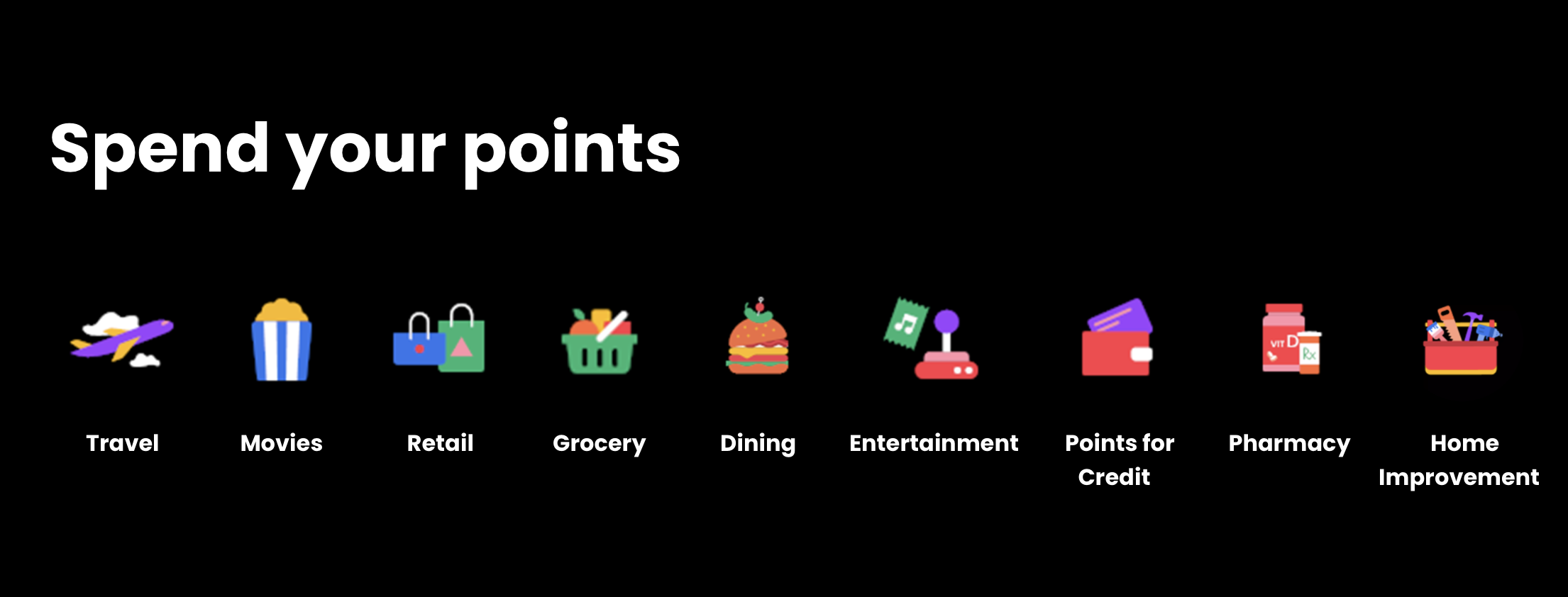
Scene+ Points
While Scene+ Rewards also provides the alternative of booking travel through Expedia via the Scene+ portal, opting for this route doesn’t offer any additional value compared to booking directly with airlines or hotels. With the redemption value being the same as booking direct, its best to bypass third-party booking sites altogether to avoid potential headaches that may occur.
Fixed Points – TD Rewards
TD Rewards offers redemption options through Expedia for TD, providing an attractive redemption value of $0.05 cents per point. You can book various travel categories, including flights, hotels, packages, car rental, cruises, and activities such as tours. For each 200 TD Rewards points, you get $1 off your travel charge.
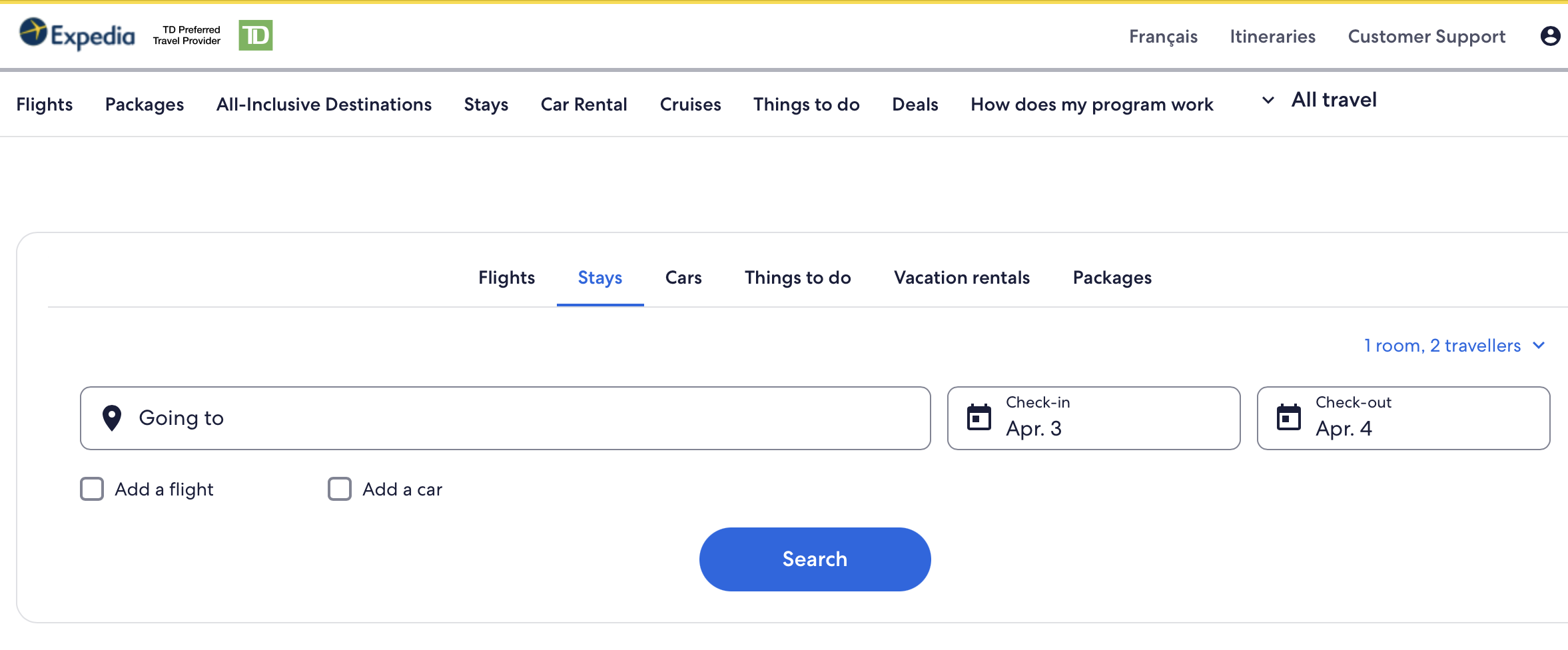
Keep in mind that when booking flights with Expedia for TD, any changes or cancellations will need to be handled by Expedia rather than directly with the airlines. For this reason, I find that Expedia for TD works best for booking non-chain hotels, activities such as tours or attraction tickets.
With TD Rewards, you also have the option to book your travel directly with any company. Select Book Any Way travel by signing into the TD Rewards portal and selecting the “Redeem” option. You’ll be prompted to fill out the info of the travel charge you wish to apply your TD Rewards to or you can call in to make the redemption.
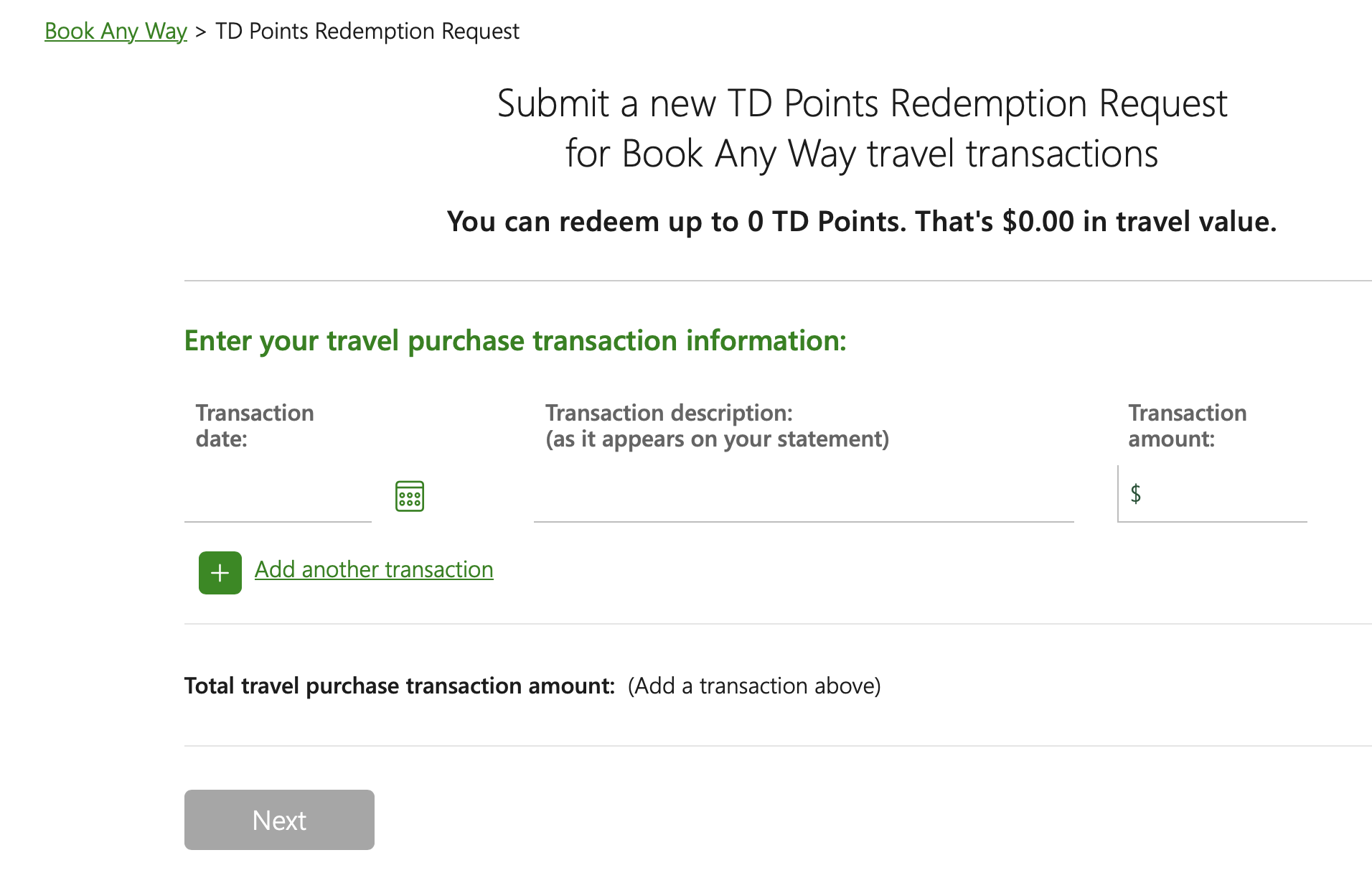
TD Rewards – Book Any Way
The redemption starts at 250 TD points for $1 off your travel charge for the first $1,200 working out to 0.04 cents per points. For any amount that is above the first $1,200, the redemption rate becomes 200 TD points for $1 off your travel for a value of $0.05 cents per point.
Fixed Points – CIBC Aventura
Turning to CIBC Aventura, you can book your travel through its Rewards Travel Centre page for flights, hotel, car rental or other travel. Applying your Aventura points against your travel booking comes with a redemption value of $0.01 cent per point.
Another redemption option with Aventura is to book a flight using CIBC’s Aventura Airline Reward Chart. The number of points required starts from 10,000 to 20,000 for a short-haul one-way flight in Canada and the US for a maximum cash ticket price of $400. Note that the points redemption only covers the base fare.
You can also book your travel with any company outside the CIBC travel portal. To redeem your Aventura points for a statement credit by selecting “pay with points” on the travel charge in the CIBC banking portal. This redemption value is subpar because it’s only worth $0.63 cents per point.

This is less than the $0.01 cent per point that you would get by booking through the CIBC Rewards Travel Centre. However, CIBC sometimes runs promos where they double the points value. It works out to 1.25 cents per points for a statement credit. This is provided you apply the points while the charge is still pending.

Photo credit: Four Seasons Florence, Italy
Loyalty Program Strategy – Flexible Points
Flexible points, also known as transferable points, are arguably the most powerful points and miles currency. This is thanks to their versatility. You can use them multiple ways, including transferring them to airline frequent flyer programs and hotel loyalty programs.
The value derived from flexible points will depend on how you use them. Generally, transferring these points to airline frequent flyer programs yields the highest return. This is especially the case when booking business and First Class flights.
There are two flexible points currencies in Canada:
- American Express Membership Rewards (MR)
- RBC Avion Rewards
Membership Rewards (MR)
One of the ways for redeeming American Express Membership Rewards (MR) is to use them similarly to fixed points, by redeeming them for a statement credit. When logging into your Amex account, navigate to “Use Points for Purchases” and then select the charge you wish to apply your MR towards. Each 1,000 MR covers a $10 charge.
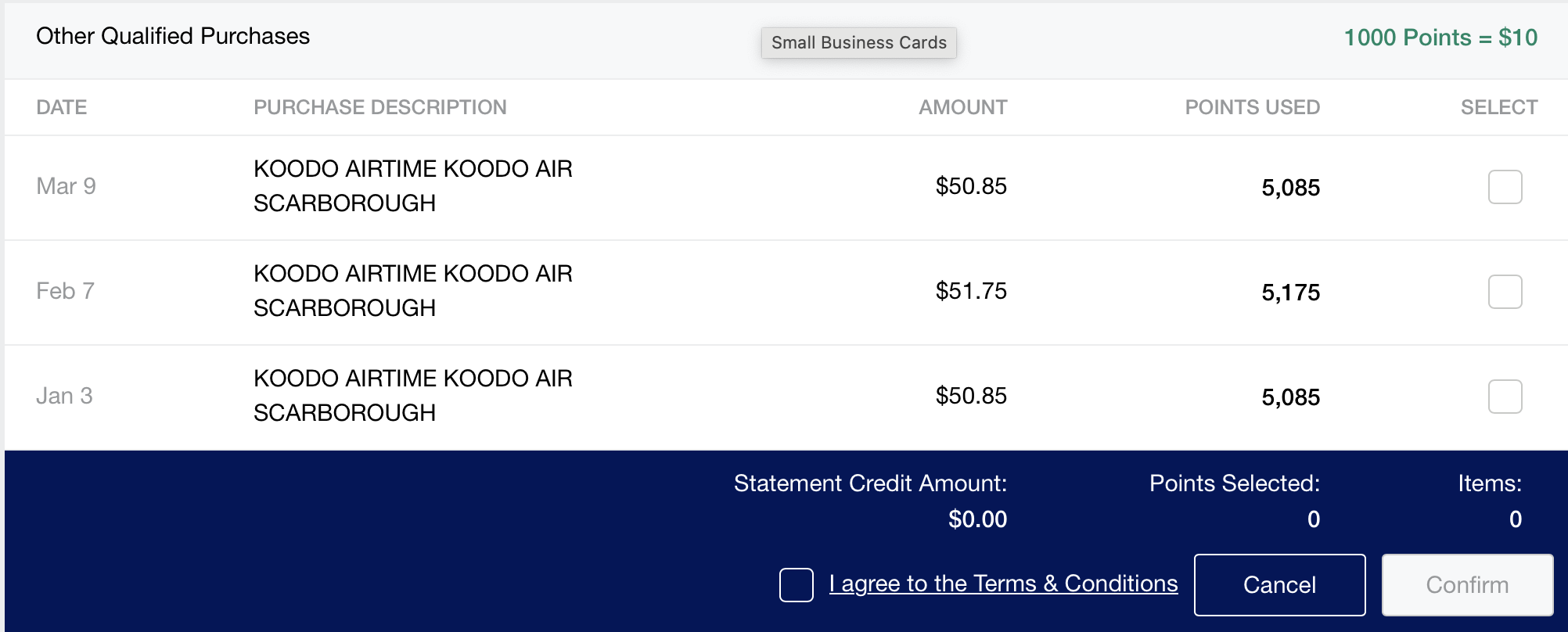
Amex – Statement Credit
Another option is to redeem MR via the Amex Travel portal, where you can book flights, hotels, car rental or flight and hotel packages. Using their travel search engine mirrors the process of booking a cash fare. You can offset travel charges, partially or entirely, with your MR points. This also comes with $0.01 cent per point value.
Alternatively, the Amex Fixed Travel Points option provides a fixed redemption rate for booking flights based on distance, region and fare class. The points cover the flight’s base fare, so you’re still on the hook for taxes and fees.
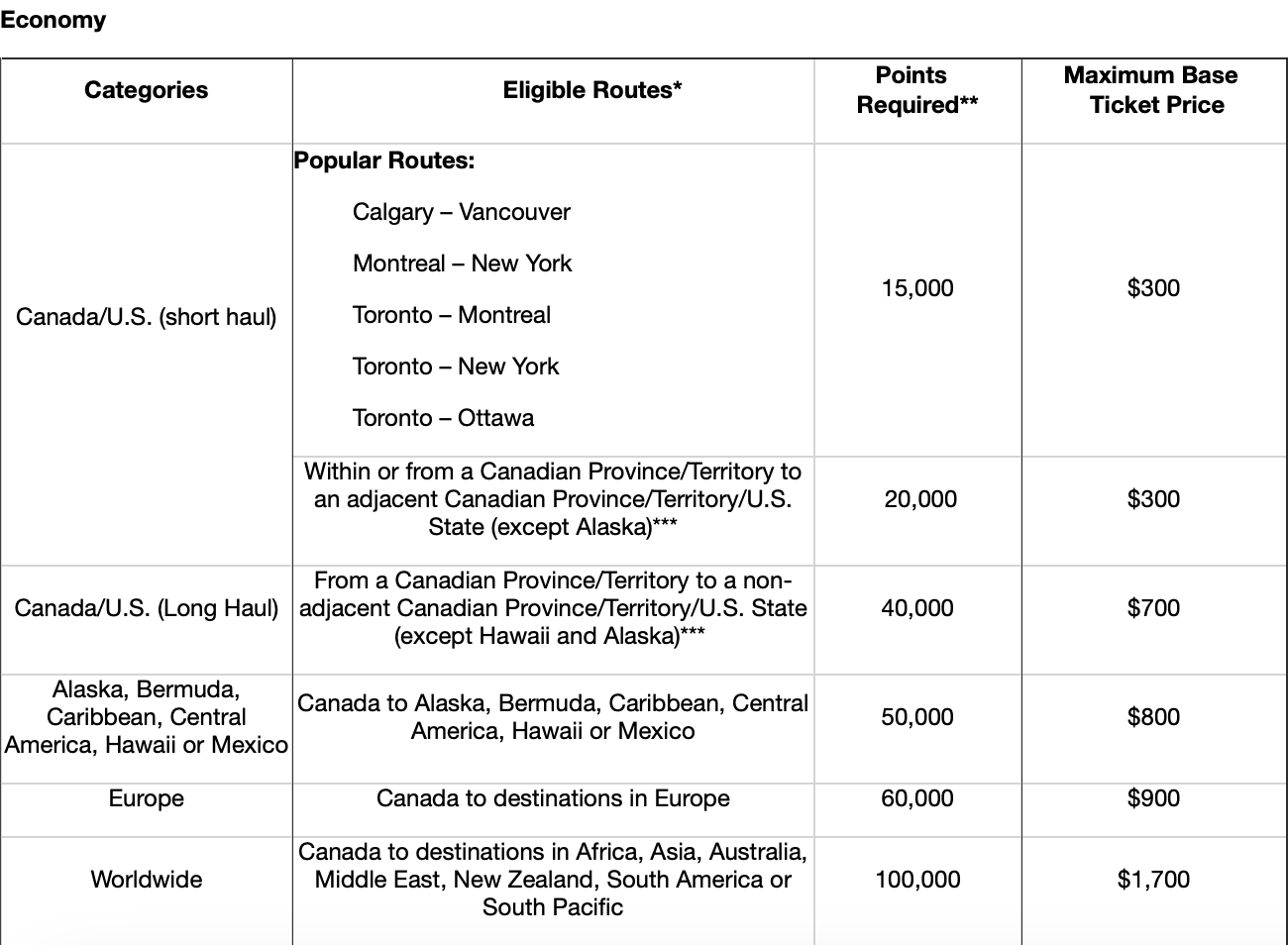
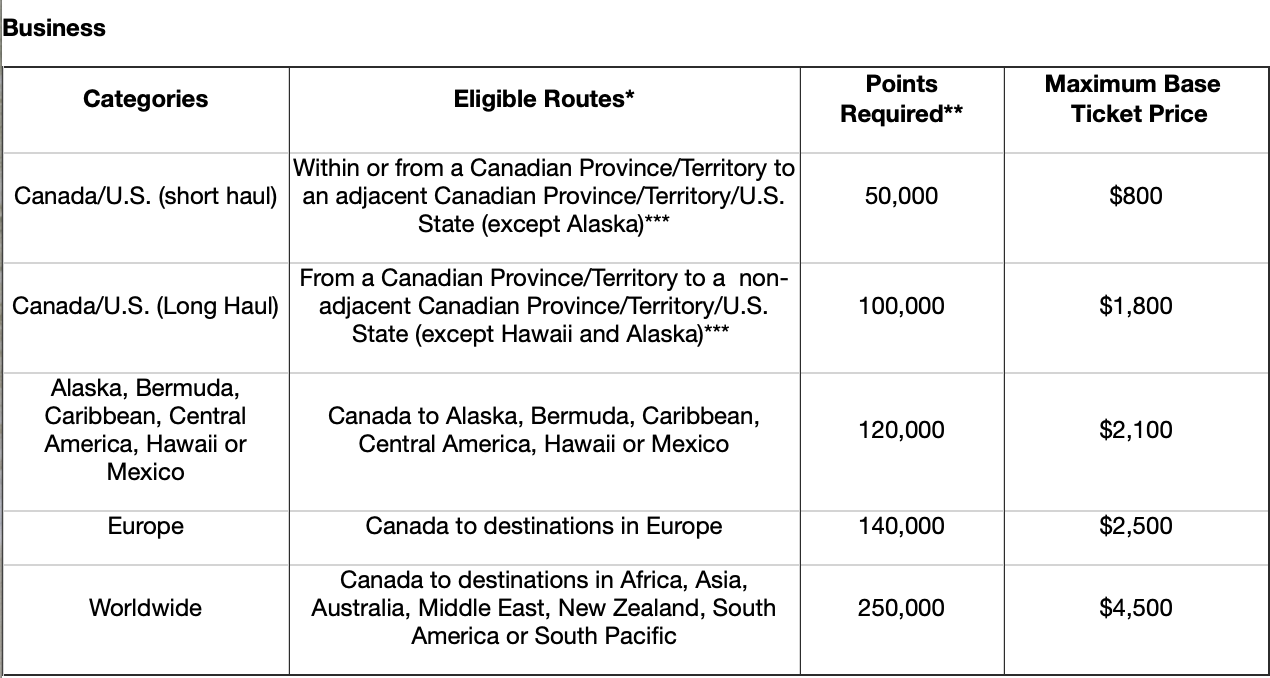
Looking at an example of a roundtrip flight from Ottawa to Toronto, the cost comes up to $492.44. If you use the flexible points option, you would need 49,244 MR for a redemption rate of $0.01 cent per point. Alternatively, the Fixed Travel Points option requires 15,000 MR points plus $192.44 for taxes and fees. This offers a slightly higher value of $1.28 cents per point.
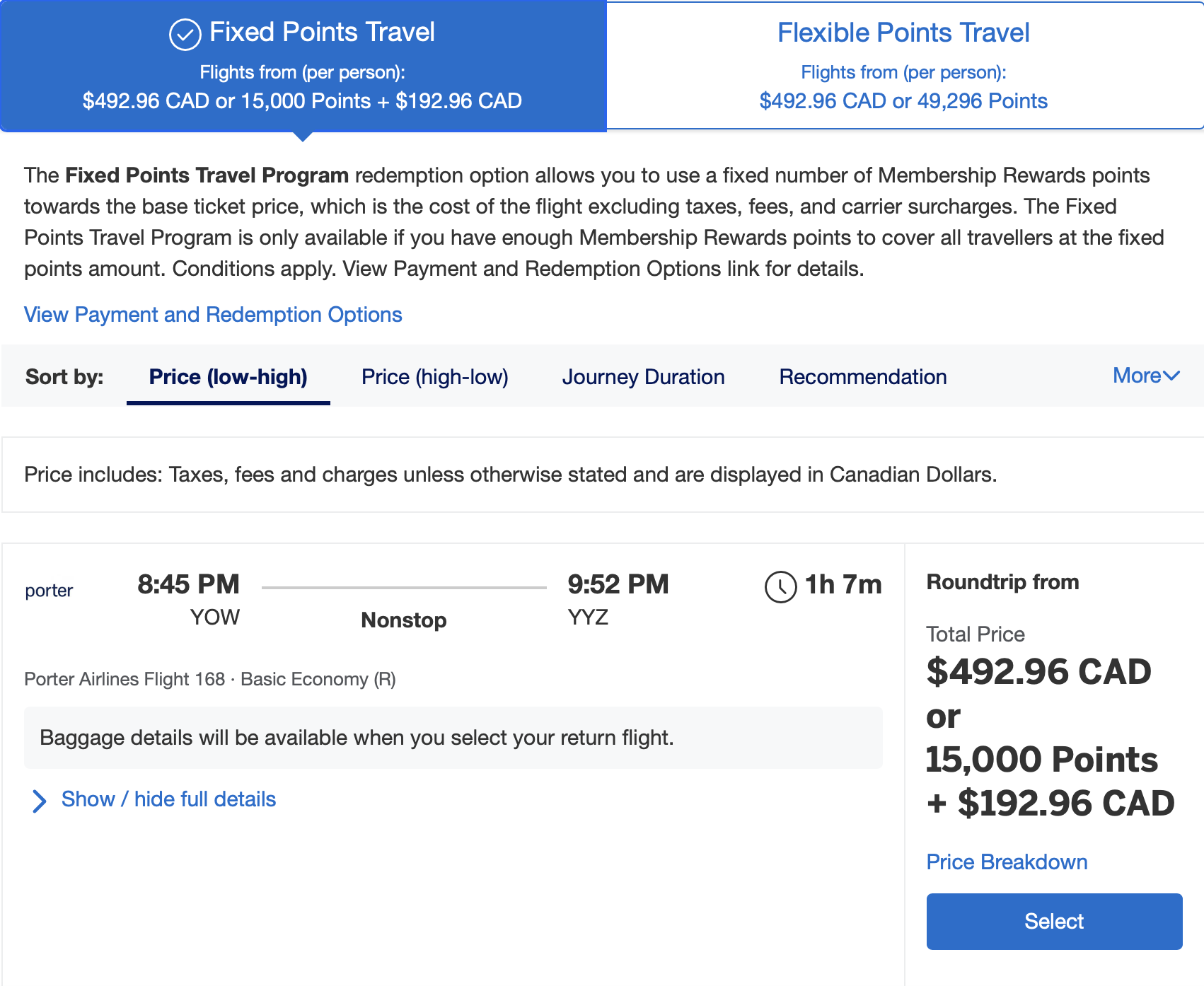
Amex Fixed Points vs Flexible Points
However, the most lucrative redemption option for MR points often lies in transferring them to airline frequent flyer programs. Amex MR transfers to the following airline programs:
- Air Canada Aeroplan (1,000 MR to 1,000 Aeroplan miles)
- Air France KLM Flying Blue (1,000 MR to 750 Flying Blue miles)
- Cathay Pacific Asia Miles (1,000 MR to 750 Asia miles)
- British Airways Executive Club (1,000 MR to 1,000 Avios)
- Delta SkyMiles (1,000 MR to 750 SkyMiles)
- Etihad Guest (1,000 MR to 750 Etihad Guest miles)
Amex MR also transfers to the following two hotel loyalty programs:
- Marriott Bonvoy
- Hilton Honors
To initiate transfers, log into your Amex account, under your MR balance, click on “View and Redeem Points”. Under the “Use Points” tab, select “Transfer Points” and this will take you to the Frequent Travel Participants, where you have the choice to transfer to the airlines or hotel programs noted above.
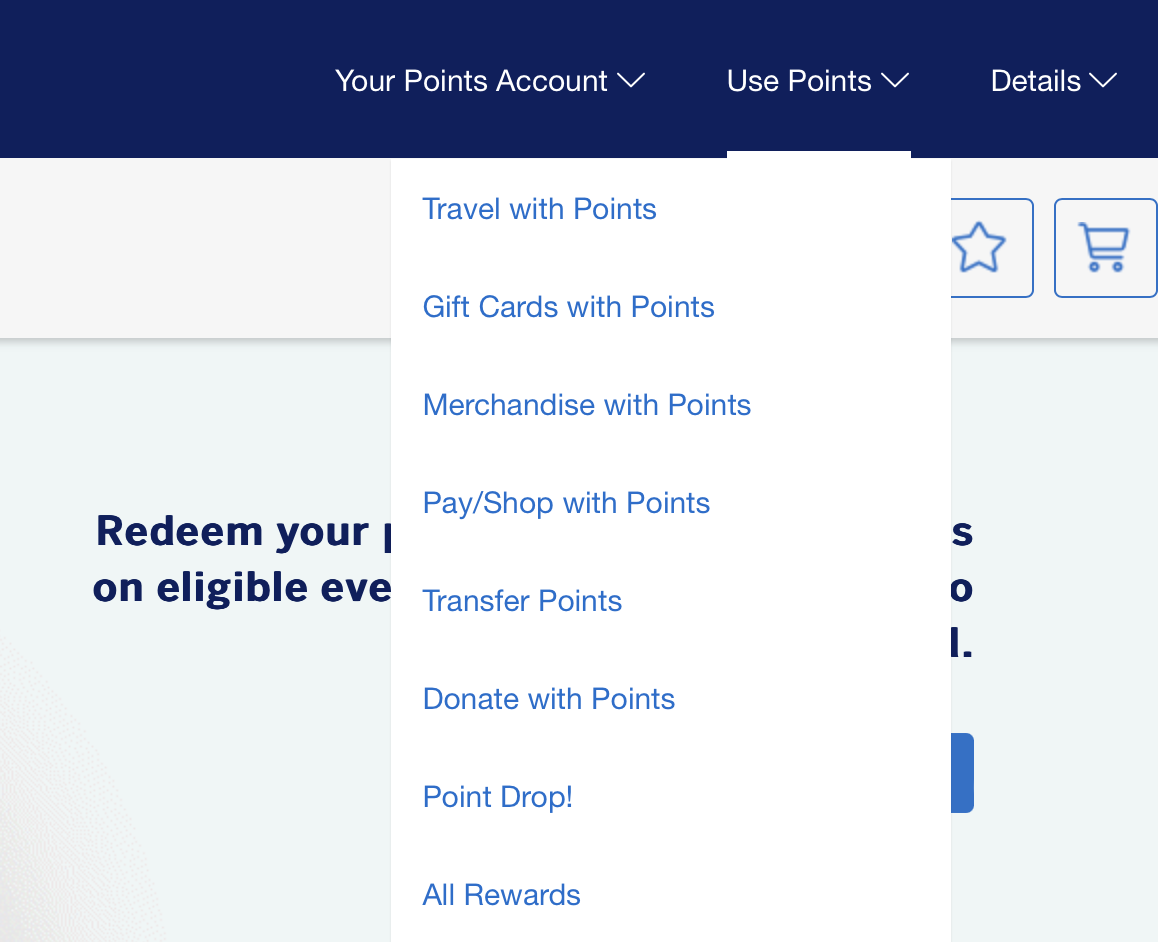
Amex Transfer
You need a minimum of 1,000 MR to transfer to partner programs. When it comes to airline transfer partners, only Aeroplan and British Airways Executive Club have a 1:1 transfer ratio. The other airline partner transfer ratios aren’t as competitive at 1:0.75 ratio.
With Aeroplan, it opens the door to book flights in premium cabin on Star Alliance partner airlines, such as Turkish, Swiss, ANA and Singapore airlines to name a few. This also unlocks the opportunity to book flights on other Aeroplan partners, such as Emirates, which is otherwise difficult to do in Canada, due to the lack of options in earning Emirates Skywards miles.
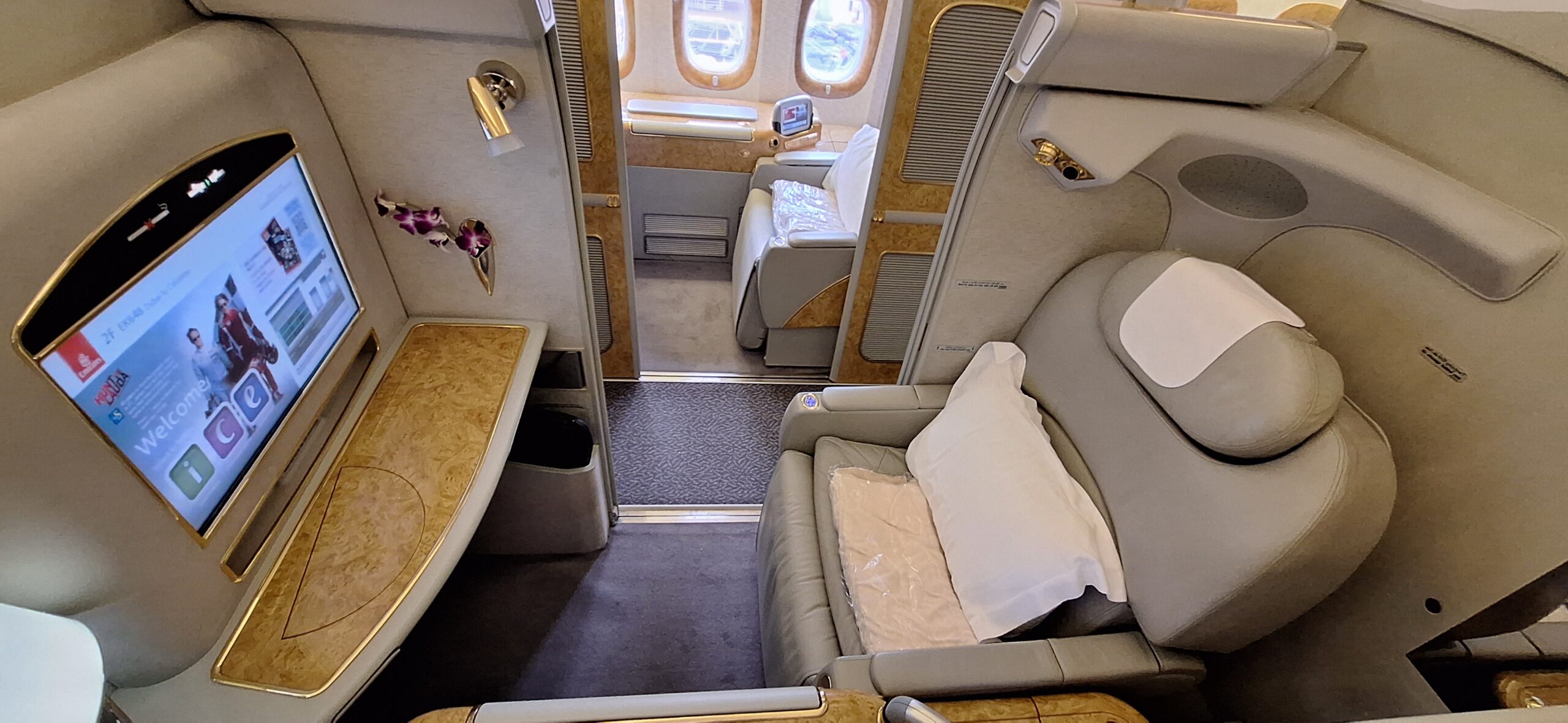
Emirates – First Class
British Avios gives you access to the Oneworld partners, such as Japan Airlines, Qantas, Iberia and my personal favourite, Qatar Airways to book QSuite. With these airline transfer partners, you have more options at your disposal. This is also a great way to fund your airline frequent flyer accounts, when you have a redemption, you want to make.
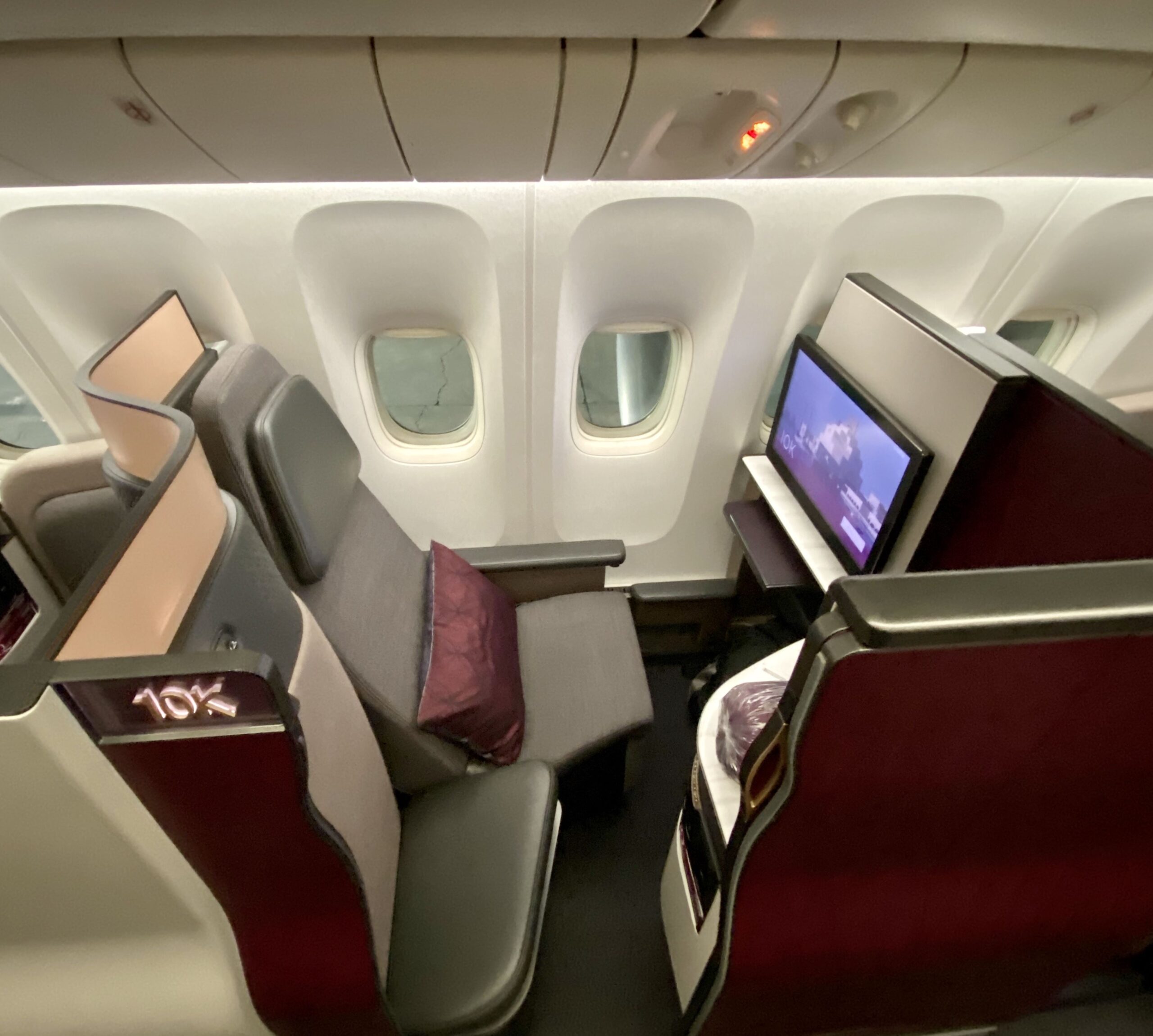
Qatar Airways Qsuite
While transferring MR to hotel programs such as Hilton Honors and Marriott Bonvoy is often less lucrative than airlines, it is a solid option depending on your travel goals. This is especially the case for upscale hotel stays, where the points redemption may outweigh paying cash. Periodic transfer bonuses, such as the current 30% bonus for transferring MR to Marriott Bonvoy further enhances the value of flexible points for covering your hotel expenses.

Avion Rewards
Turning to RBC’s flexible points currency, Avion, it has many similarities to American Express Membership rewards. You have various redemption avenues, including transferring to airline frequent flyer programs. However, Avion points come in different tiers, each with distinct redemption options:
- Avion Select: this entry-level tier allows redemptions for gift cards, merchandise, charity donations, and limited travel options. However, points cannot be transferred to airline programs nor can they be combined with higher-tier Avion points
- Avion Premium: this mid-tier has the option to transfer to frequent flyer programs, but it’s limited to WestJet Rewards. Most importantly, you can transfer Avion Premium points to Avion Elite.
- Avion Elite: as the top tier, Avion Elite unlocks the most valuable redemption options, including transferring to airline frequent flyer programs.
For the purpose of this post, we’ll focus on redemption options for Avion Elite, which you can earn by holding RBC Avion co-branded credit cards.
You can book travel by going to your Avion Rewards, where you have the option to book flights, hotels, car rentals, packages, cruises, all-inclusive vacations and even activities and apply your Avion points against these travel charges to reduce your out-of-pocket travel expenses.
When booking flights, Avion offers two primary options akin to the Amex MR travel portal:
- Flexible Points: Avion points can be applied at a rate of 100 points per $1, yielding a redemption value of $0.01 cent per point. Holders of certain premium and business RBC Avion credit cards can enjoy a higher redemption rate of 200 points per $1 for flights booked in business and First class.
- Fixed Points Pricing (referred to Air Travel Redemption Schedule): this option assigns a fixed point value for flights based on distance, region and fare class. For instance, using the same example I did for Amex MR, a roundtrip flight from Ottawa to Toronto requires 15,000 Avion points plus $172.97 for a 1.15 cents per points. This makes it a better value than the flexible points option that requires 49, 297 Avion points for this example.
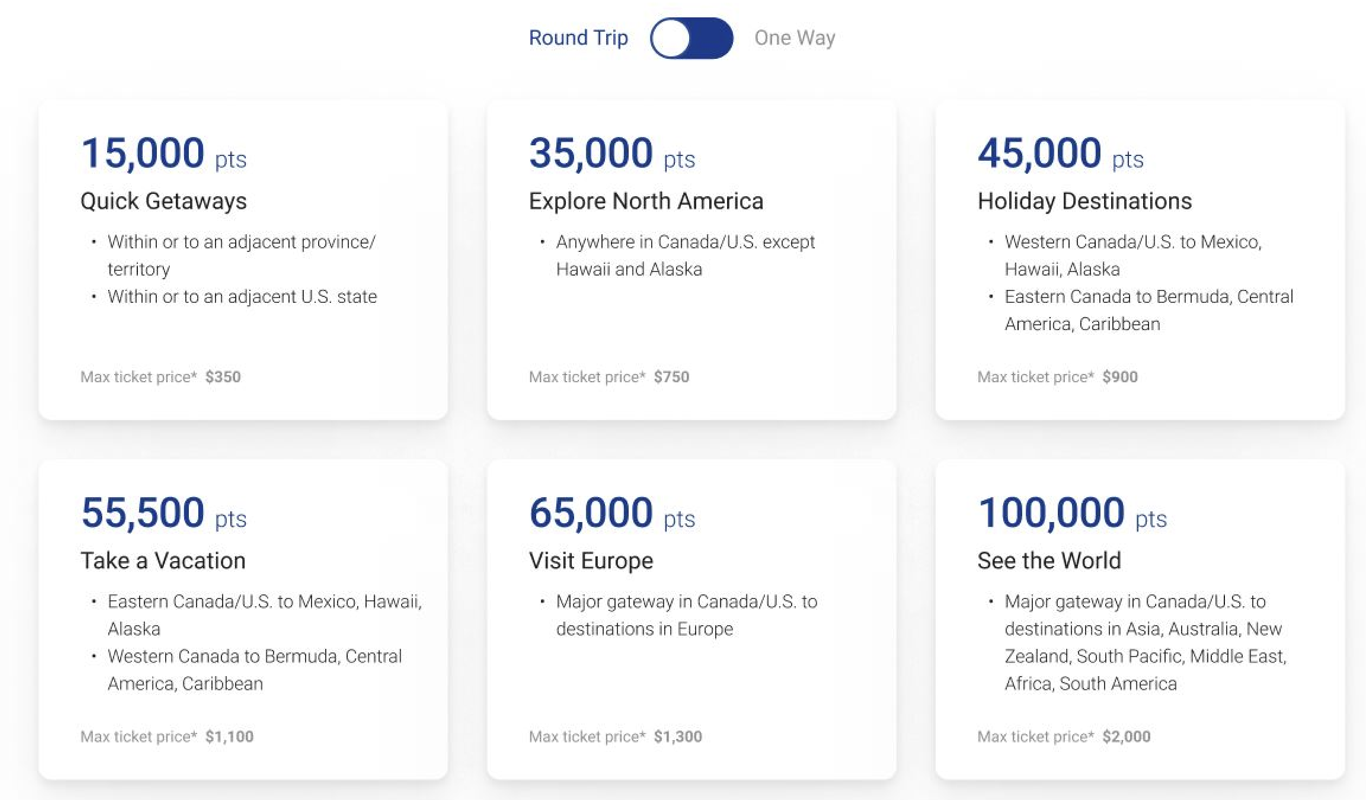
RBC Air Travel Redemption Schedule – Fixed Points Pricing
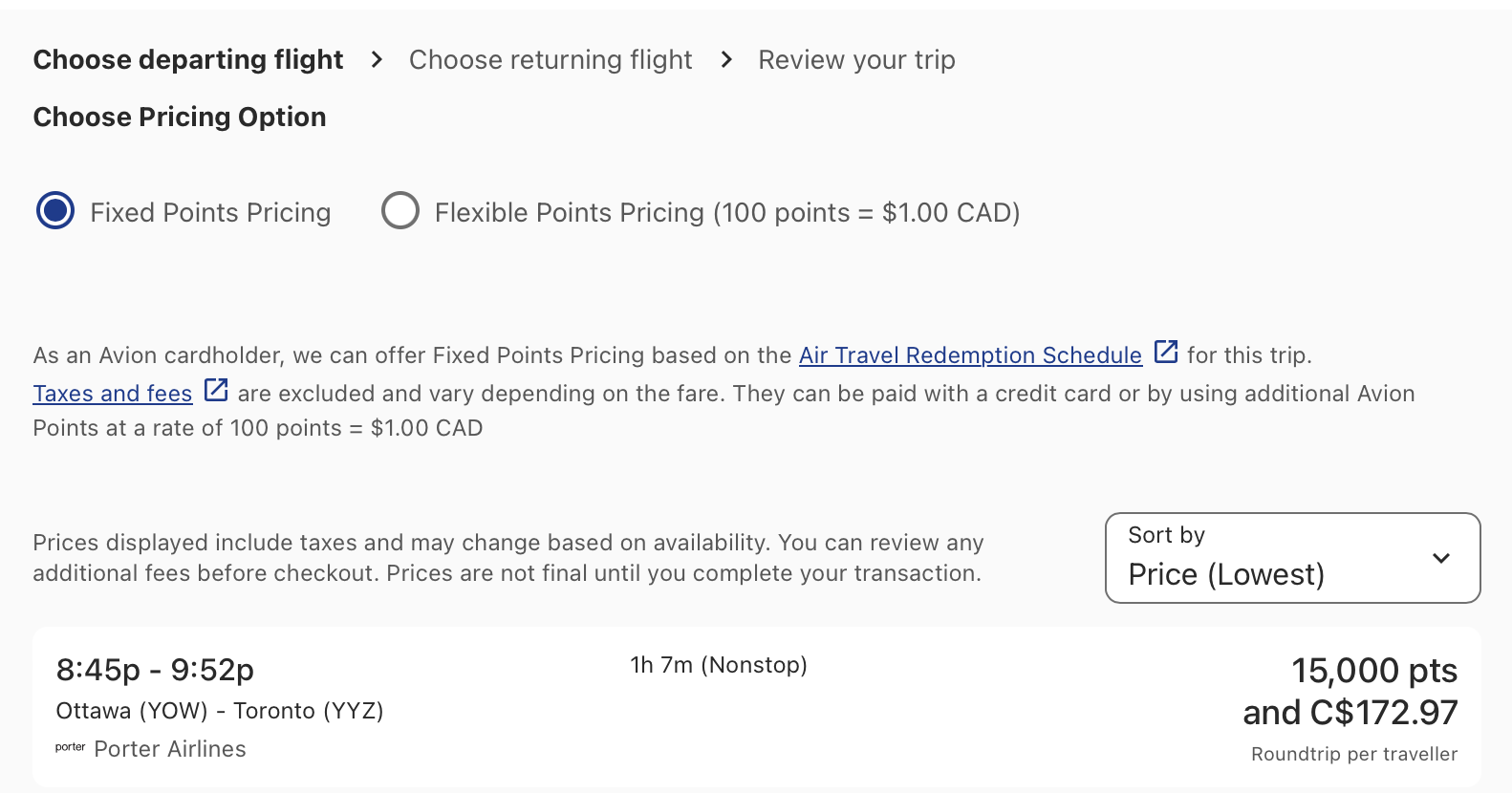
Additionally, Avion points can be transferred to several airline loyalty programs:
- American Airlines AAdvantage (5,000 Avion to 3,500 AAdvantage miles)
- British Airways Executive Club (10,000 Avion to 10,000 British Avios)
- Cathay Pacific Asia Miles (10,000 Avion to 10,000 Asia miles)
- WestJet Rewards (1,000 Avion to $10 WJD)
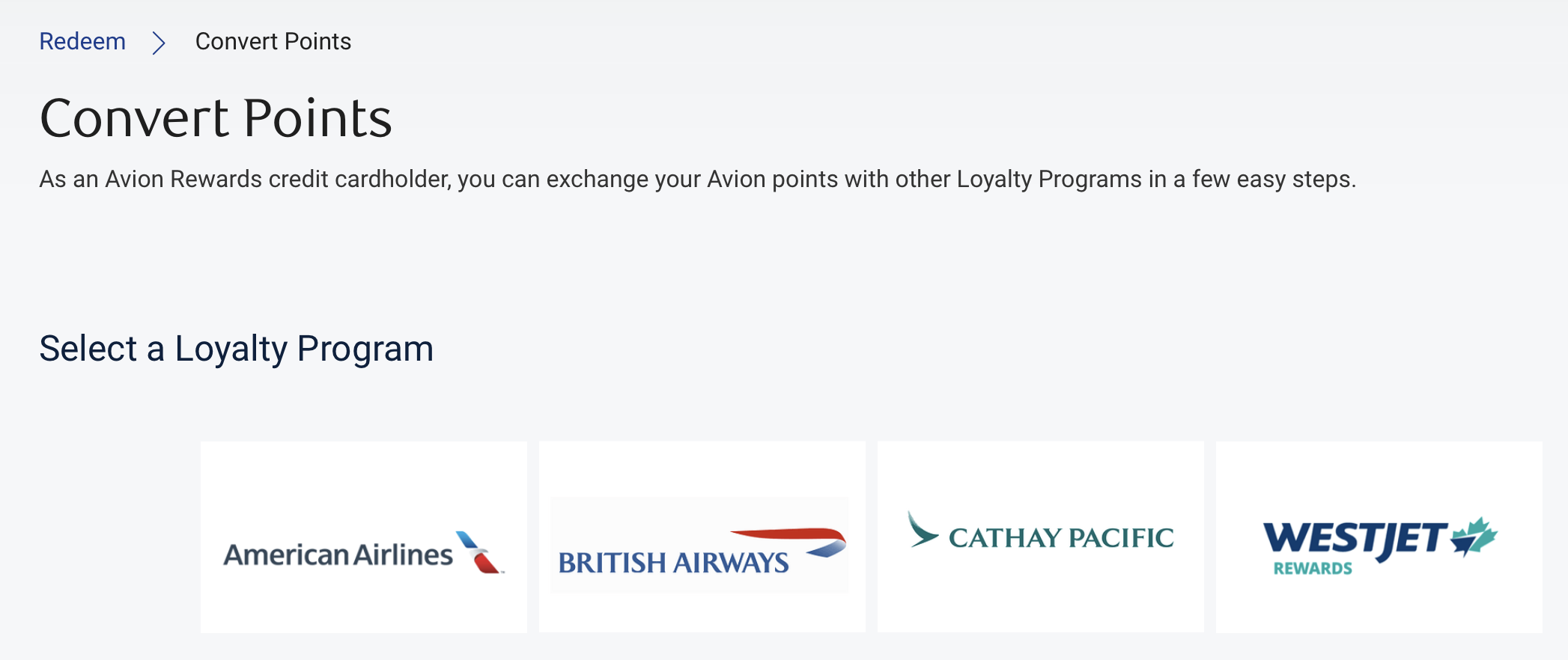
Transferring to airline loyalty programs is a valuable way of redeeming Avion points. Periodic transfer bonuses, such as the 30% from Avion to British Airways Avios further increases the attractiveness of Avion Rewards. While both British Airways and Cathay Pacific are also available to transfer to from Amex MR, this presents you with an additional option to boost your miles balance in those respective frequent flyer programs.
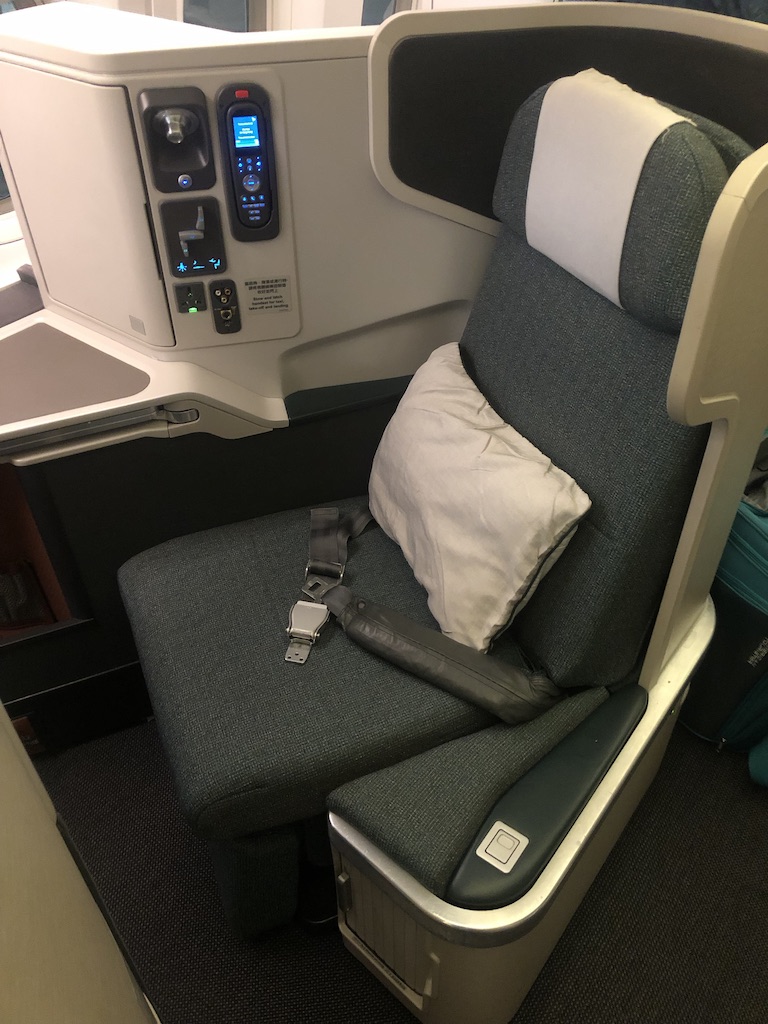
Cathay – Business class
One unique partner is American Airlines AAdvantage. Despite a less favourable transfer ratio of 1:0.75, it remains a valuable option for maximizing your points. One of the strengths of AAdvantage is they don’t impose fuel surcharges when booking flights on miles. This also provides you with an additional avenue in accessing flights on Oneworld alliance partners. This expanded network offers a wealth of destination and routing options, bolstering the appeal of Avion Rewards.
Fixed Points vs. Flexible Points – What’s Best for You?
Fixed points or flexible points, which of these should you pursue?
The decision boils down to what you’re trying to achieve with your Loyalty Program Strategy. Fixed points offer simplicity and predictability, providing a clear understanding of the value you’ll receive when making a redemption. There’s no need to invest time and effort in learning the intricacies involved in airline frequent flyer programs.
This makes fixed points ideal for those seeking straightforward rewards without the hassle of dynamic pricing. Leveraging fixed points works best if your goal is to reduce your out-of-pocket expenses so that your travel budget goes further.
On the other hand, flexible points, are most valuable when transferring them to airline frequent flyer programs. This opens up the possibility of booking business and First Class flights at a fraction of a paid cash fare. Transferable points unlock aspirational travel experiences and appeal to those looking to maximize the value of their points and miles.
The great news is you can have the best of both worlds. Adopting this dual strategy approach allows you to enjoy the benefits of simplicity offered by fixed points while leveraging the potential for aspirational travel experience with flexible points.
For instance, for my trip to Argentina, I leveraged this strategy by booking my business class flights from Montreal to Buenos Aires using Aeroplan miles, topped up with a transfer from my Membership Rewards account. Meanwhile, for accommodations in Patagonia, where hotel chain options were limited, I utilized my fixed points.
Charging my Ushuaia hotel stay to my Scotiabank Gold card, I redeemed Scene+ points to offset the cost. Likewise, in El Calafate, I opted to use TD Rewards to partially cover my hotel expenses. This approach allowed me to seamlessly blend the benefits of flexible and fixed points, effectively maximizing their value while minimizing out-of-pocket expenses.

Photo credit: Waldrof Astoria – Amsterdam
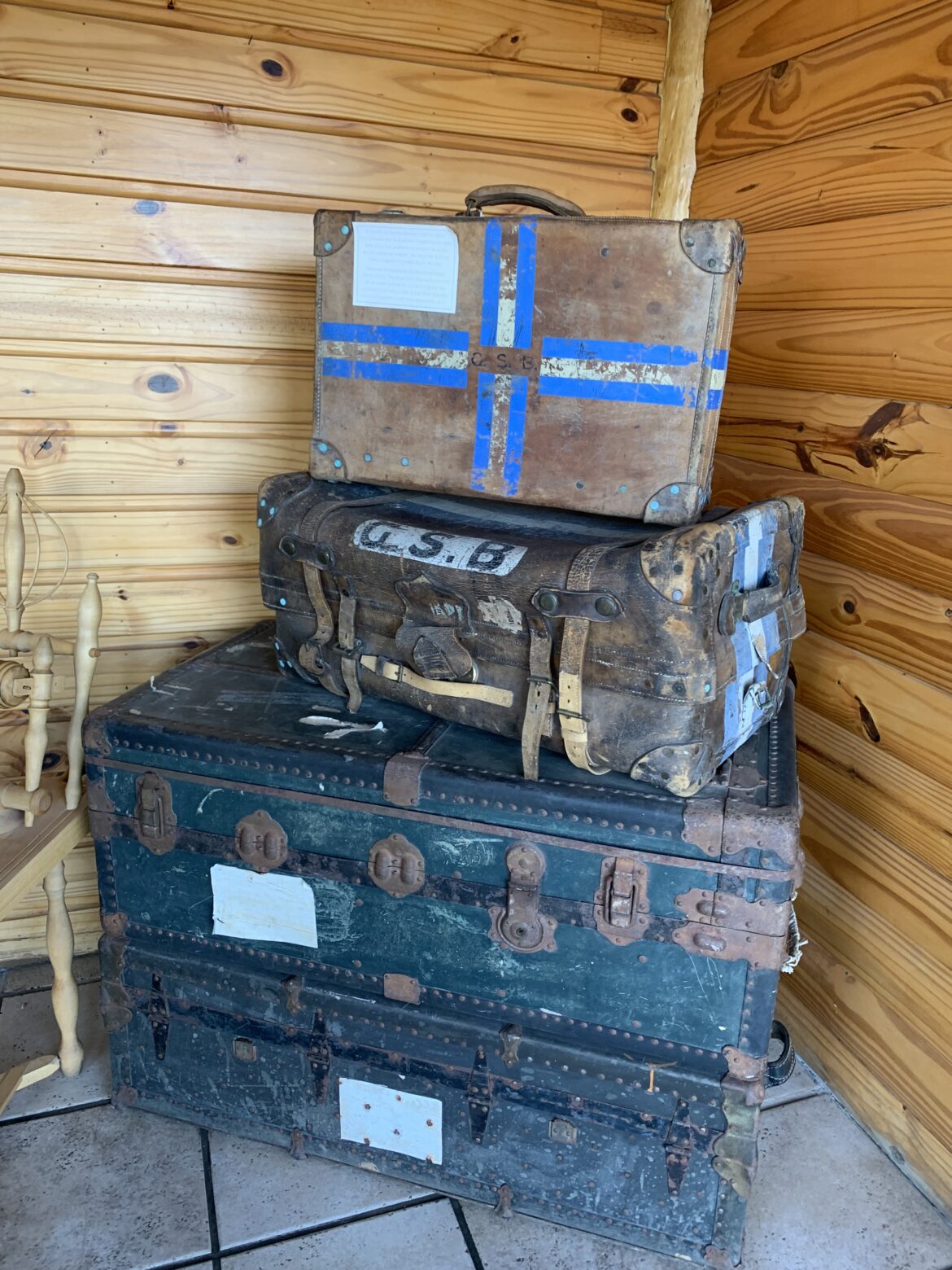
2 comments
Great write up for fixed points travel which I was trying to learn recently. Lots of great info and tips, I just have a very specific question regarding TD first class rewards points. I’m just wondering for the $100 travel credit which I need to use for hotel booking over $500, how exactly should I be doing? Do I just apply the credit online as I book hotel over $500 like the American Express Travel credit? or I have to call TD rewards department to manually apply the credit for me after the booking. I can’t seem to find where to apply the $100 credit on online one trying to book a travel reservation. Thank you so much in advance for your help. Cheers.
Thanks Robert! You would login to your TD for Expedia account to make the hotel booking of $500 or more. TD will automatically post the credit after several days of the booking. According to the terms, they have up to 90 days to post the credit, but it normally doesn’t take this long to post. Also, keep in mind that unlike the Amex credit, the one TD offers is by calendar year, so depending on when you opened the card, you can benefit it from it twice.